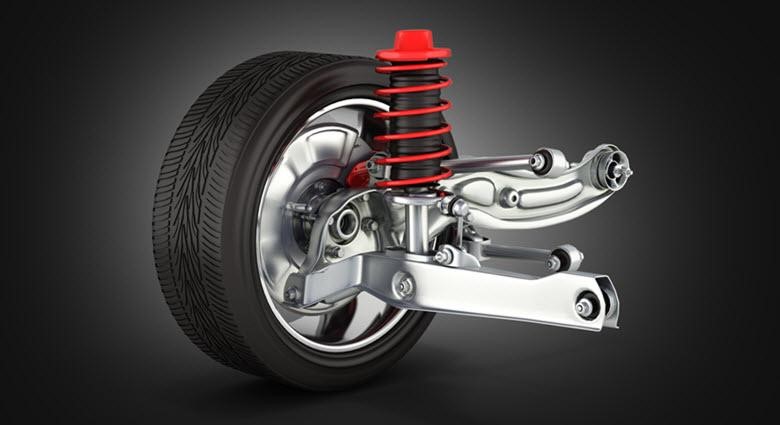Your car suspension's functions and how to make them last longer

Your car suspension’s main function is to keep every ride smooth. The bumps, the shaking, the uncomfortable feel of a ride, and the uneasy turns are telltale signs there may be something wrong with the suspension. It’s important to keep your car suspension in good shape to maintain control over it during rides, even on uneven roads.
The suspension is just some of the important systems in the car chassis. Other than the suspension system, the chassis houses the steering system, the car frame, and the tires and wheels.
The suspension system consists of three main parts. Springs support the overall weight of the car. Coil springs and leaf springs are the most common springs in cars. Coils springs are more widely used in daily cars while heavy tricks mostly use leaf springs.
The shock absorbers protect spring coils when your car receives an impact from uneven roads and bumps. They are responsible for the less bumpy rides. If your car only has springs, when the tires run over uneven surfaces, it will just keep springing up and down. The shock absorbers, through a process called dampening, control the car's motion by slowing down and reducing the vibration from the movement.
The anti-sway bar that keeps the car stable when making turns is also part of the suspension. Your tires also affect your car’s suspension.
How do you maintain the suspension?Since many parts comprise the suspension, you have to make sure each part is given care and attention. Most work must be handled by professional mechanics, but you can take care of some of the maintenance work in your everyday drives.
Properly inflate your tires
When your car tires are not properly inflated, it affects the grip it has on the road. Running on uneven tires can also ruin their shape which affects shock absorption. Ultimately, ill-maintained car tires affect your car’s suspension.
Have your wheels aligned
When you drive on well-aligned tires, you reduce the wear and tear and will help your suspension system. If you don’t drive on rough roads often, wheel alignment every two years must be fine. Otherwise, regular wheel alignments may be necessary.
Watch out for unusual sounds and movement
If driving over a bump makes you hear a clunking sound from below the car, this could potentially mean that a part of your suspension is not working properly. The first you should check for this is the spring coils. Most spring coils are designed for long-time use, but over time, they may need immediate replacing, too.
If you sense that your car feels unusually bouncy when you make turns around corners, then it’s time to check the shock absorbers.
Other than careful and skillful driving over bumps and uneven surfaces, the next thing you can do to make your spring coils and shock absorbers last is to regularly have them checked by a mechanic. These parts are designed to withstand unfriendly road conditions, but when they wear and tear, they easily fail.